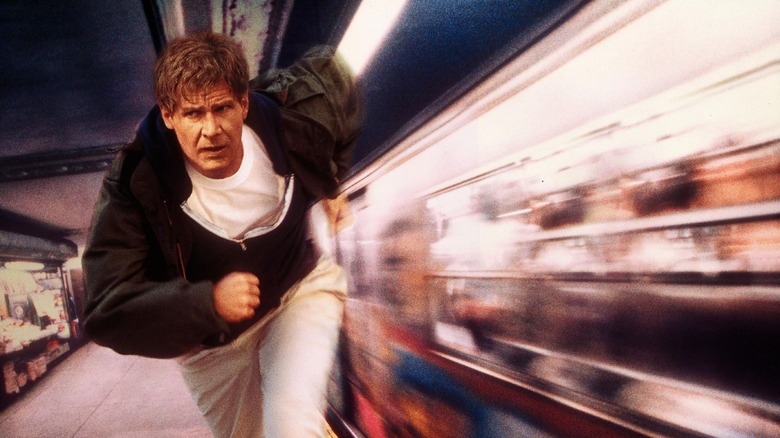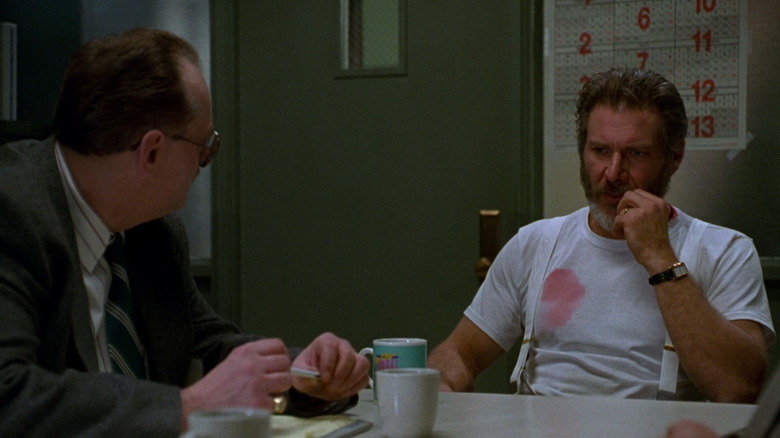Harrison Ford Insisted He Know Nothing About This Fugitive Scene Before Filming
The 1990s were the peak of Harrison Ford's career as an action star. With "Star Wars" and "Indiana Jones" behind him, Ford appeared in a succession of one-off, star-driven vehicles. Audiences didn't flock out to these movies to see Indy or Han Solo, they did it to see Harrison Ford.
One of the most fondly remembered of these action movies is "The Fugitive," director Andrew Davis' remake of the 1963 TV series. Ford is the titular character: Dr. Richard Kimble, a Chicago surgeon falsely accused of killing his wife Helen (Sela Ward). Kimble escapes while being transported to prison; as a fugitive, he must simultaneously dodge pursuit by U.S. Marshal Samuel Gerard (Tommy Lee Jones) and find "the one-armed man" (Andreas Katsulas) who killed his wife.
The film's opening scenes show how Kimble became "The Fugitive" with montage-like efficiency, showing the good doctor's trial, questioning, sentencing, and escape within 20 minutes. The character reactions in the interrogation scene were extra authentic for two reasons: who wrote the questions and when Ford heard them.
Blind interrogation
The interrogation begins about five minutes into the film and last four. Kimble is questioned by two detectives, Rossetti (Joseph Kosala) and Kelly (Ron Dean). Davis and his DP Michael Chapman shoot the scene in alternating medium close-ups, keeping the characters' reactions centered and creating a sense of Kimble as a man cornered on both sides.
Kosala and Dean both act with slightly condescending indifference; they've already decided that Kimble's guilty and are setting him up to get the answer they want. As has been documented, real cops are often less concerned with solving a case than closing it and getting their collar. However, Kosala did more than just act. As a former police officer, he helped write the scene to make the detectives' questioning feel authentic (via WB).
Ford, for his part, didn't look at the scripted questions before shooting. He wanted his reactions to be believable and so didn't rehearse answers. It worked. For one, Ford usually hesitates a few seconds before delivering his line, like he's truthfully considering the question before answering. He's also reserved until he realizes the police are teeing him up to take the fall, at which point his emotional dam breaks. Thanks to Ford's naturalistic performance, Kimble comes off as a man so blind with grief, he doesn't consider that he could be a suspect and so doesn't realize he's walking into a trap until it's too late.
"The Fugitive" as a whole may be high concept, but touches like these added technical and emotional authenticity to the film.

